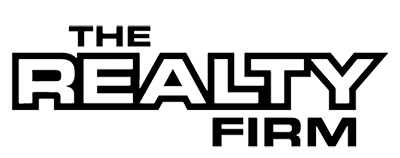Getting approval on a mortgage is a process with no shortage of moving parts. Before the Great Recession, mortgage approvals were like ice cream flavors at Baskin-Robbins—numerous and easy to get. But in the last few years mortgage lenders have significantly restricted their offerings. Borrowers need to be prepared for the tougher requirements or risk being turned down by banks and other lenders. One area where home buyers run into problems is failing to make the proper distinction between being qualified for a mortgage and being approved. Just because you are pre-qualified for a mortgage doesn’t mean you will get one. But when you are pre-approved your chances for a green light from a lender are greatly increased.
What’s the difference between the two and how will it affect your hunt for the perfect mortgage?
In general, a lender who pre-qualifies a buyer discusses a buyer’s credit, income and assets with them. A lender who pre-approves a buyer runs their actual credit and verifies their income and assets. That’s a major difference since agents and sellers view a pre-approval as a more firm start to the home-buying process. This is what the pre-approval process means to homebuyers once it starts rolling.
Your loan would be submitted for preliminary underwriting, which normally takes no longer than 24 hours. Your mortgage consultant would then provide you with a pre-approval letter that defines the loan amount you are approved to receive. Pre-approvals are normally good for a 120-day period, so it’s important to begin your home search with your real estate professional as soon as possible.
A mortgage pre-qualification is an initial assessment of a potential buyer, and often it’s not worth the paper it’s written on. But a pre-approval goes deeper and involves a more thorough look into your income and expenses. This includes a look at your credit score. There’s no harm in getting pre qualified. It’s a good gateway to buying a home, but to lock down that home, focus on getting pre-approved.
Buyers should always get pre-approved. Why? A buyer can confirm the sample monthly payment they may own when they close, and they can get an idea of the home’s price range. They can also determine if there are any potential unknown credit issues that may need to be addressed prior to purchasing.
Getting square on pre-qualified versus pre-approved streamlines the entire home-purchase process.
If all parties involved are aware of the distinction, it helps everyone play their role to the best of their ability. The listing agent who calls the mortgage originator understands the differences between pre-qualifications and pre-approvals. The mortgage loan originator who deals with the agent has a better grip on the entire process, by providing clarity on the pre-qualification or pre-approval process. Even homebuyers can leverage the distinction between the two processes to help their own cause. Clients armed with this information can request a thorough pre-approval rather than a cursory pre-qualification. They can also play a role in ensuring the best possible handling of their transaction.
The takeaway for homebuyers? Know the difference between being pre-qualified and pre-approved. Focus your energy on accepting the former but aggressively seeking the latter.
Do that and you’ve taken a huge step in buying the home of your dreams.
As always, contact us at The Realty Firm for any housing needs. We have an extensive network of lenders, attorneys, inspectors, and many others. You can be sure that you’ll be put into contact with all the necessary people to ensure you get the home of your dreams! Call us anytime at 931-520-7750.




